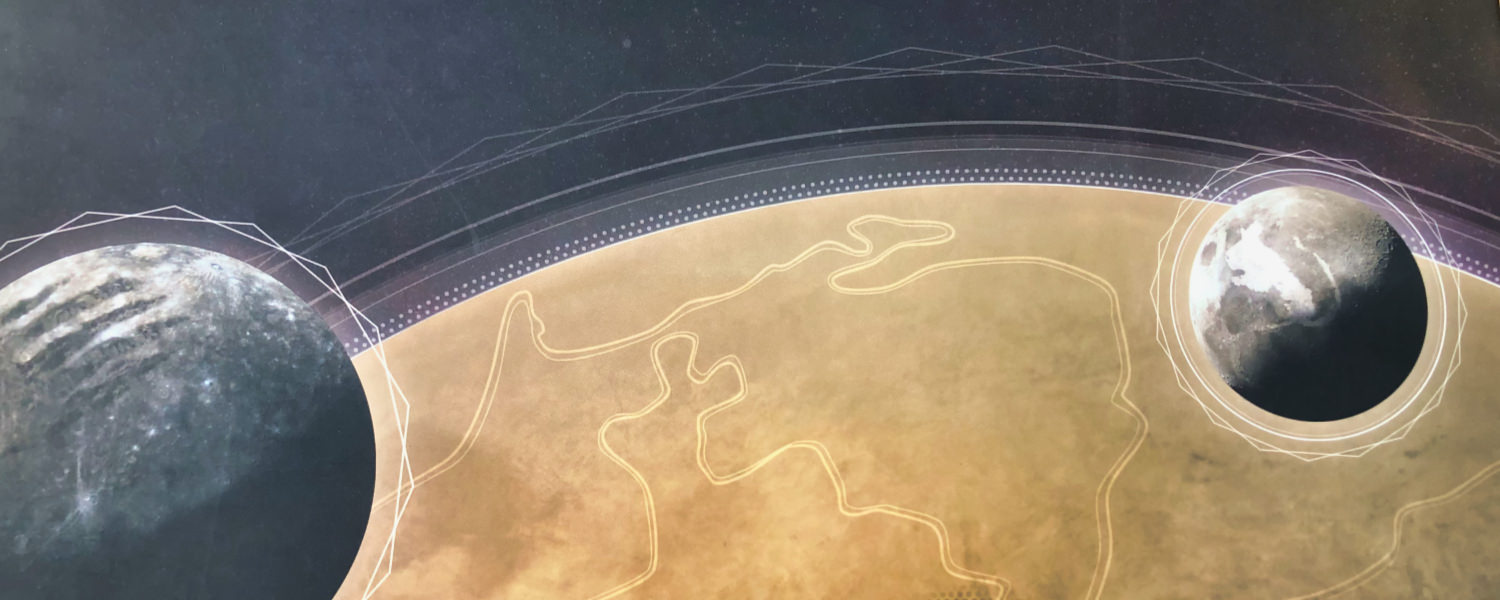
Dune: Imperium
On the desert planet Arrakis, everything revolves around Spice, because Spice is the most valuable resource in the entire universe. The big houses on Dune (as Arrakis is also called) fight bitterly for control of the spice. As in the book or movie, the board game is about political influence, alliances, intrigues and conflicts between the different factions. As the leader of one of the Great Houses of the Landsraad, we try to get the most victory points among all the imponderables. To do this, we have to send our agents onto the game board, skilfully use the special abilities of our leader and optimise our card deck and thus our action options.
Building alliances
At the beginning, each player chooses a leader and receives three agents, sixteen dice (combat troops), three control markers, one combat marker and one victory point and one council marker according to his or her player colour. In addition, there is a starting deck with ten cards for each player. For further preparation, the conflict deck and the display still have to be put together. The Mentat and the Alliance markers are placed on the board - the Intrigue cards next to them. In Dune there are three different resources: spice, solari and water. Each player starts with one water.
Conflicts and intrigues
Dune: Empire is played over several rounds until a player has 10 or more victory points, or the conflict pile is empty. Each round always consists of five phases:
- start of round
- player moves
- battle
- sandworms
- recall
At the start of the round, the top card from the conflict pile is revealed. Then each player draws five cards from their deck. In the second phase, players take turns sending their agents clockwise to the squares of Arrakis. To place an agent, a hand card must be played that contains the corresponding symbol of the field. For some fields, costs must be paid or conditions fulfilled before a player can place his agent there. An agent may only be placed on a field on which there is not already an agent. If an agent is placed on a faction's field, the player's influence with the faction increases and can thus receive additional resources or victory points. Troops can be mobilised and used in conflicts via the combat fields. As soon as a player cannot or does not want to use any more agents, he makes a reveal move. This allows him to acquire new cards from the draw. The player's combat strength is then determined. Once each player has made his reveal move, the player moves end.
A player's combat strength is determined by the troops used in the conflict (two per squad) and the number of swords on the revealed cards on the combat bar. In combat, additional intrigue cards can be played that further increase the combat strength. Rewards for the winners of the battle are distributed via the revealed conflict card. In the Sandworm phase, a Spice is placed on all unoccupied spaces with a sandworm symbol. In the final recall phase, the conditions for the final are checked first. Then all agents are returned from the field to their leaders and the starting player marker is passed clockwise.
House Hagal
For travellers who want to go to Arrakis alone or in pairs, there is an additional pack of cards and minor rule changes, which are described on an extra sheet. With the help of the House Hagal cards, one automated opponent is controlled in the game for two and two in the solo game. These occupy fields, form alliances, recruit troops and thus intervene in conflicts. In solo play, these rivals can generate victory points through resources. The level of difficulty in the solo game can be variably adjusted through a variable starting structure.
The next Arrakis Shuttle
In one of our last game rounds, the feeling of the game was described very aptly: you always feel you have too few resources and one of your opponents always makes exactly the move you have just painstakingly planned for yourself, so that it is no longer possible. Even if this sounds very negative, it is the special charm of Dune: Imperium. You are constantly under pressure and try to defend and increase your victory points, which is quite tedious in the first rounds. The fact that you feel like you're not only fighting against your fellow players but also somehow fighting together against the game makes Dune: Imperium a real speciality - and it's really fun!
But the game also has a lot to offer mechanically. Of course, it is basically a worker placement game that is influenced by a pack of cards. But there is also the possibility of forming alliances with the various factions. These alliances can be destroyed by opposing players. Different synergy effects are created through cards that are acquired in the display and the leaders have different abilities with varying degrees of difficulty. The combat mechanism is simple but nicely integrated into the gameplay. The interlocking of all these mechanical elements is superbly done in Dune: Empire. Although the Haus Hagal maps work very well, the optimal number of players for me is three to five.
There are, however, three small points of criticism. The game board and resources or meeples are rather plainly designed. Personally, this doesn't bother me at all, but some of my fellow players found it rather boring. The two other points concern the game mechanics. On the one hand, it is difficult to optimise your deck because there are hardly any possibilities to get rid of cards. On the other hand, the upper deployment fields Landsraad and Mafea have some weaknesses. Neither is serious, but I will go into that in more detail in the upcoming article on the Rise of Ix expansion.
All in all, Dune: Imperium is a captivating game that lets all players - winners and losers - sleep well after a great evening and will certainly end up on our table many more times.
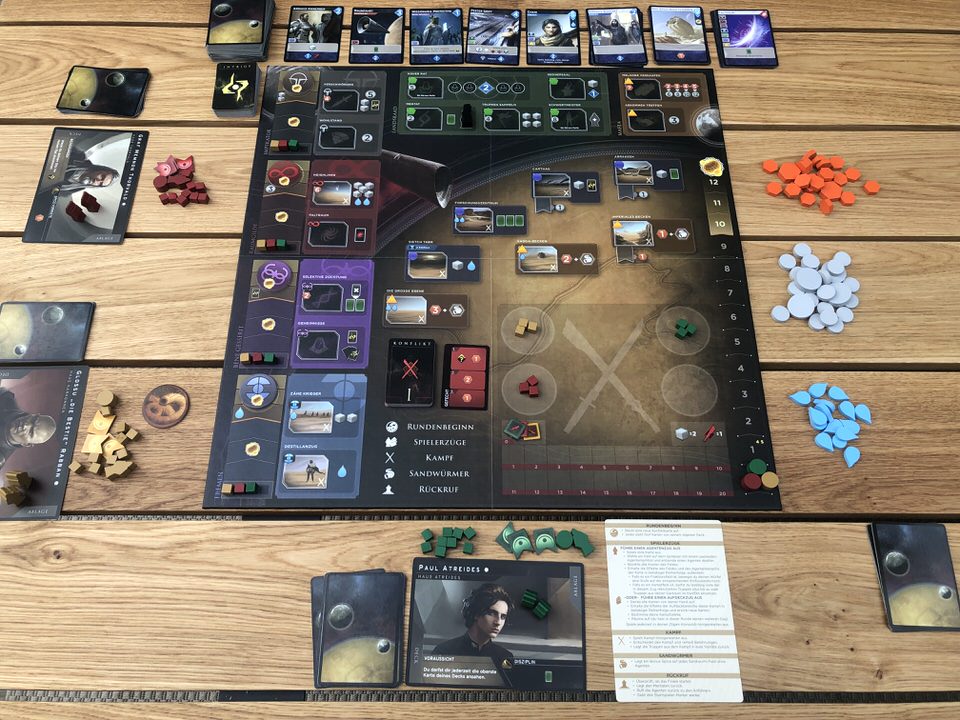
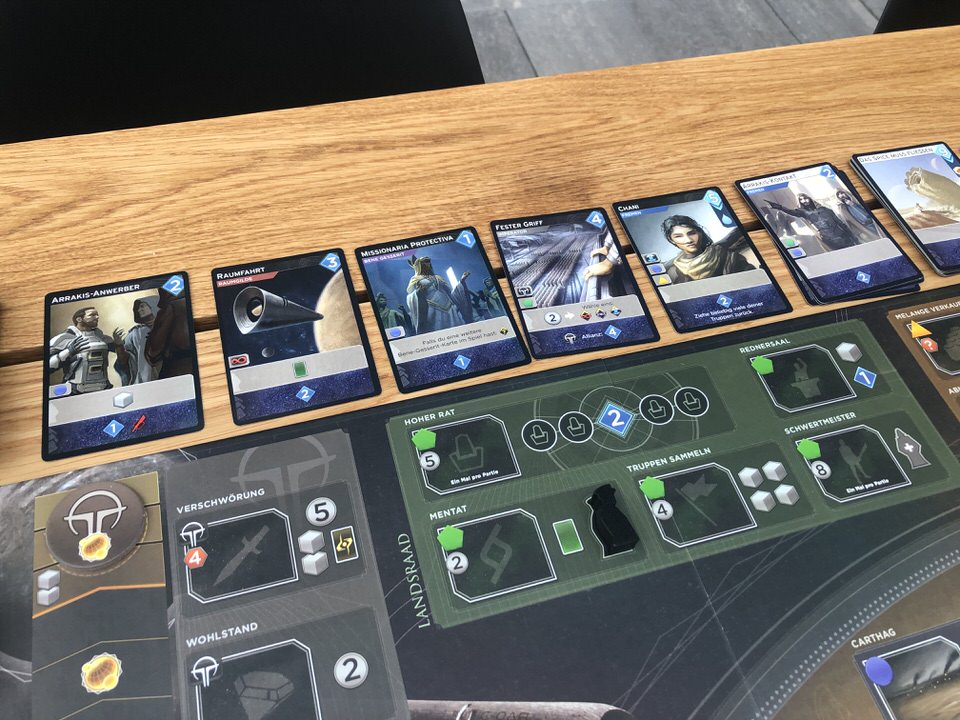
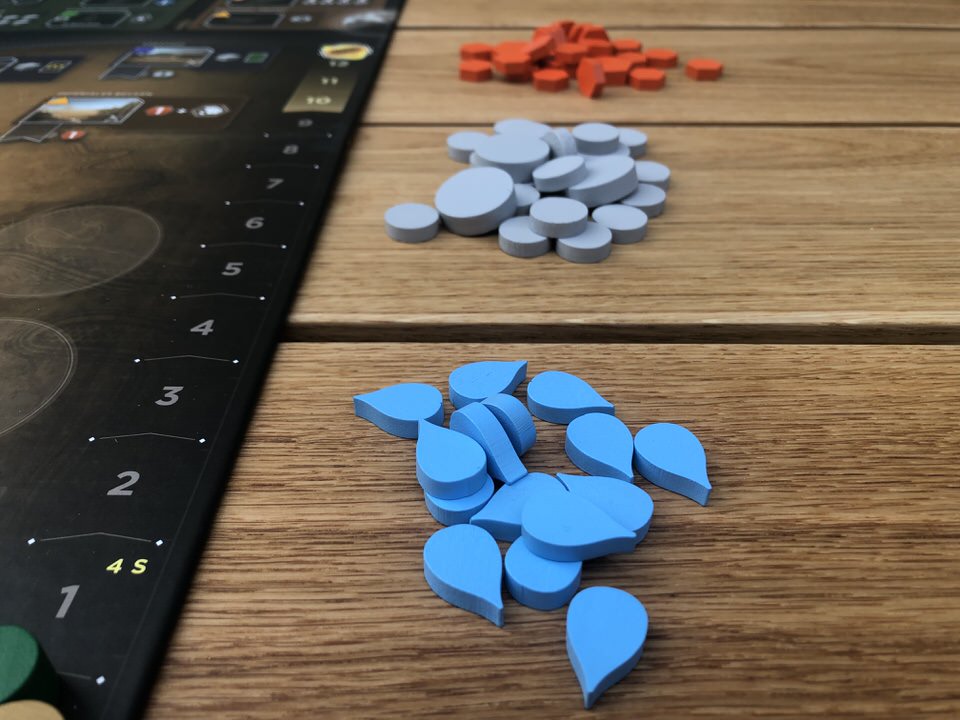
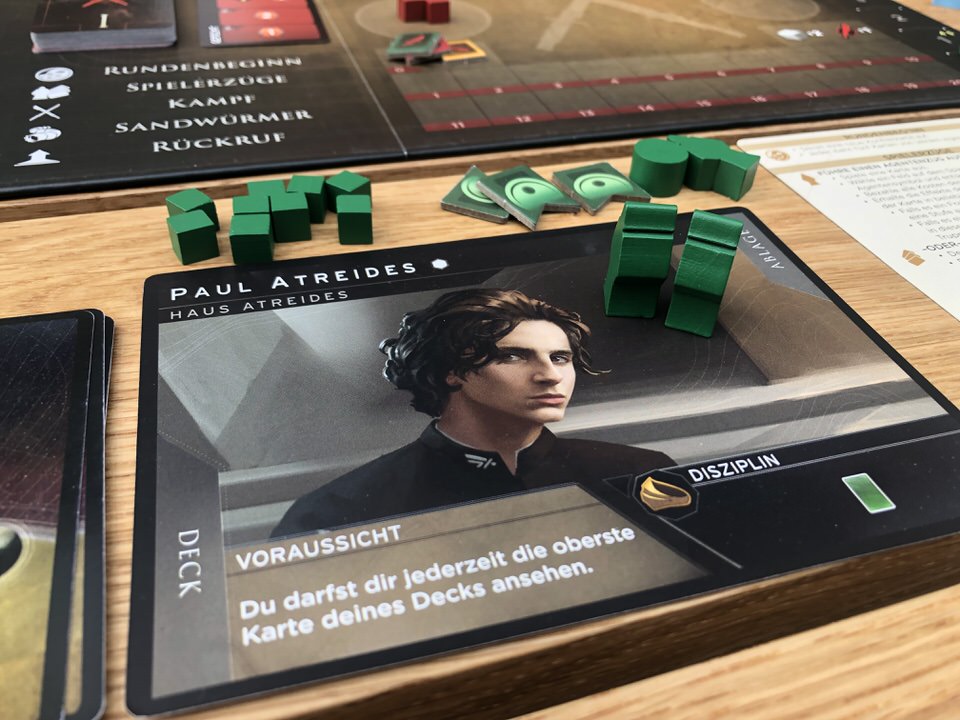
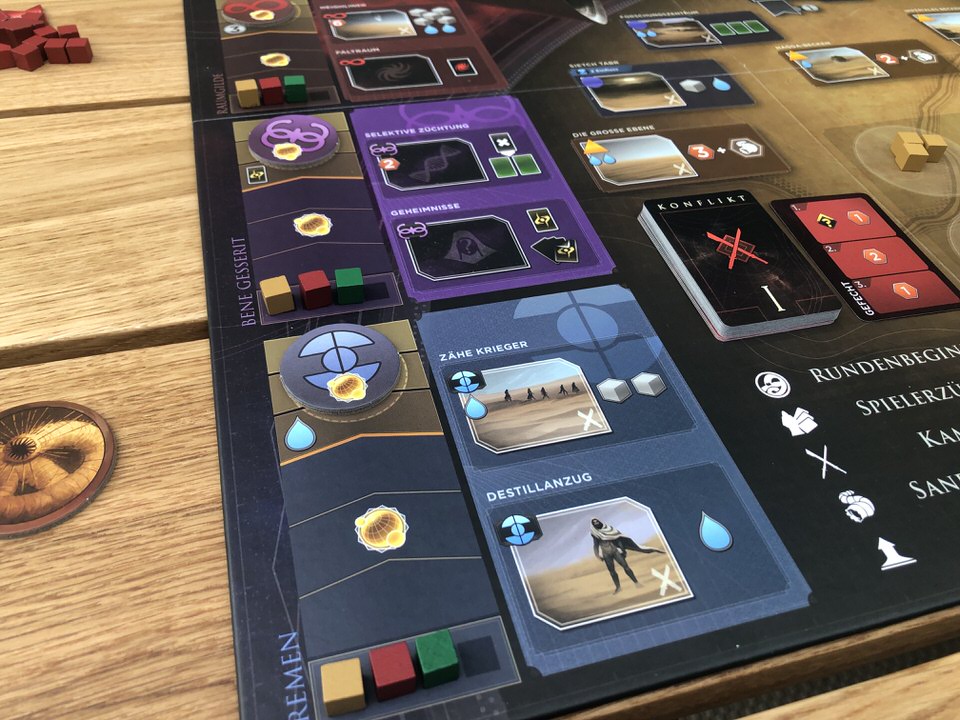
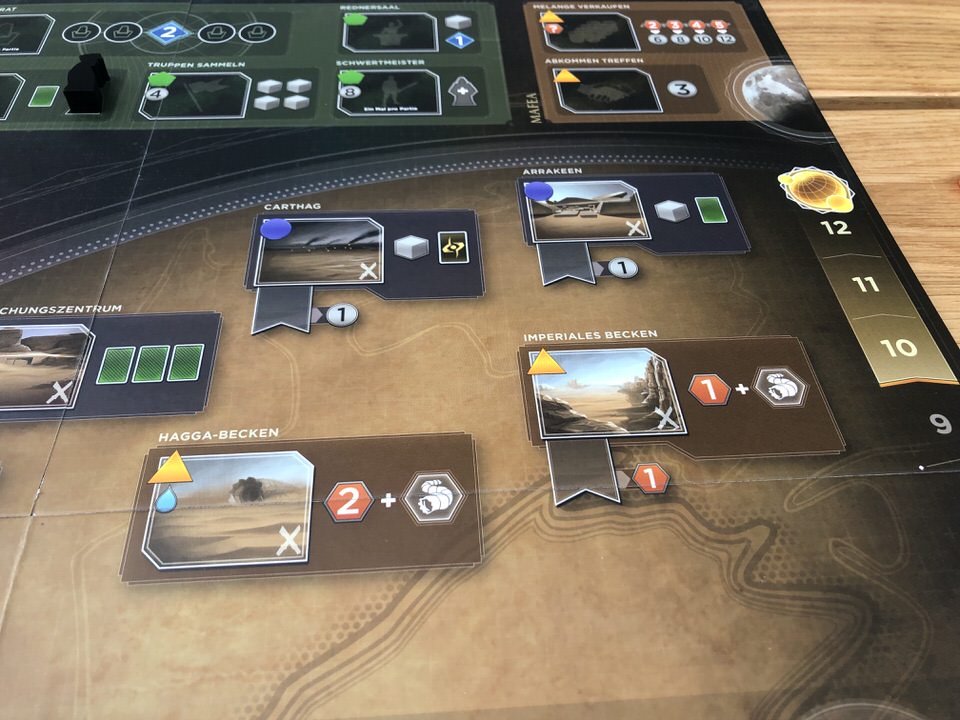
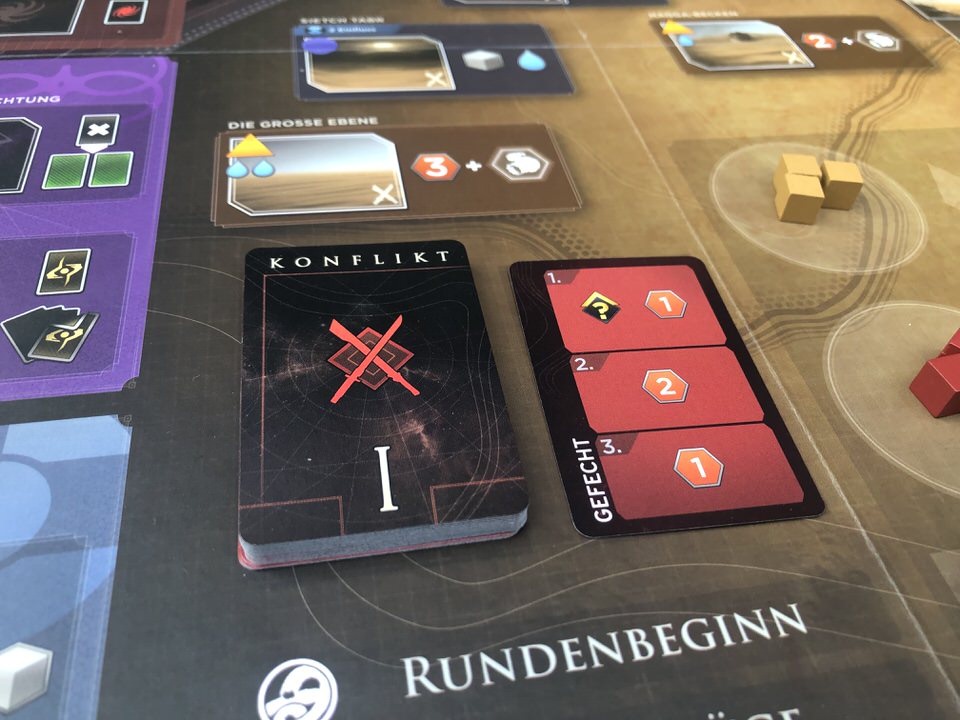
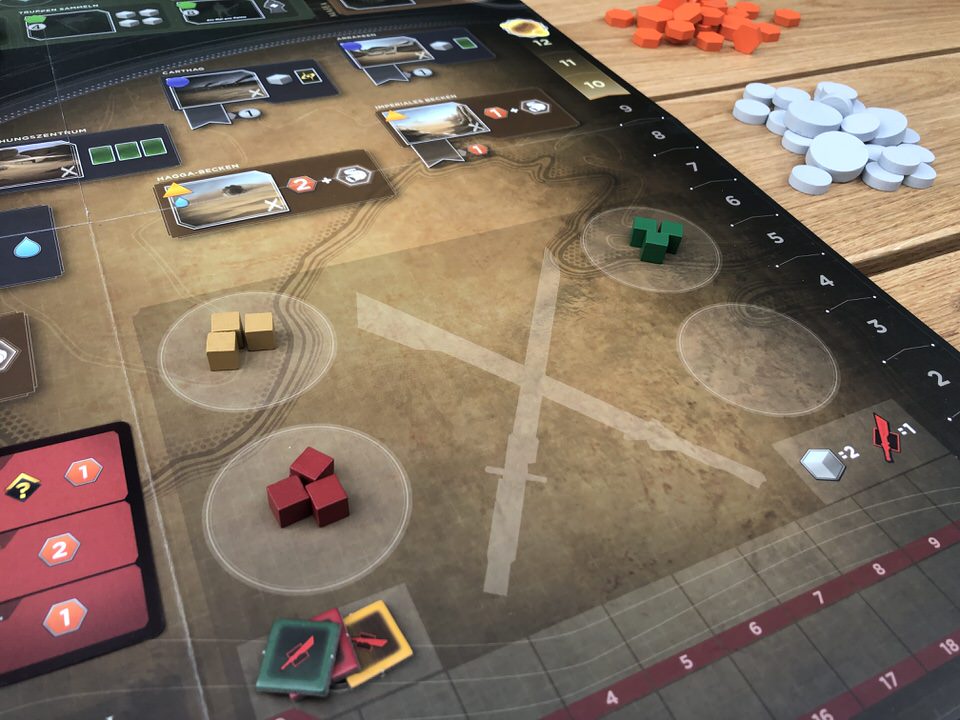
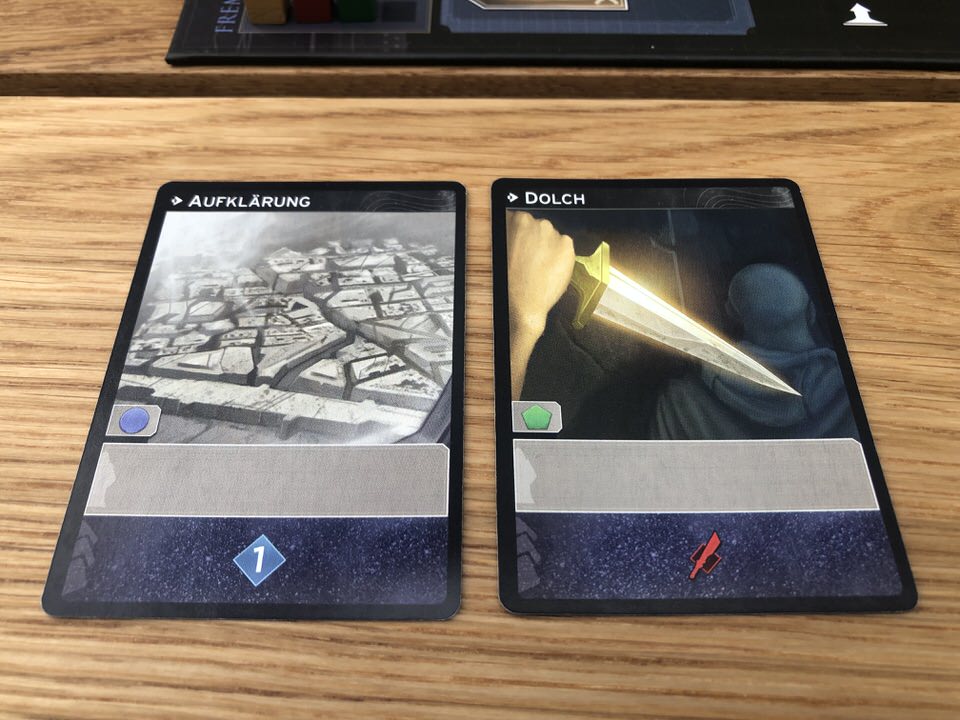
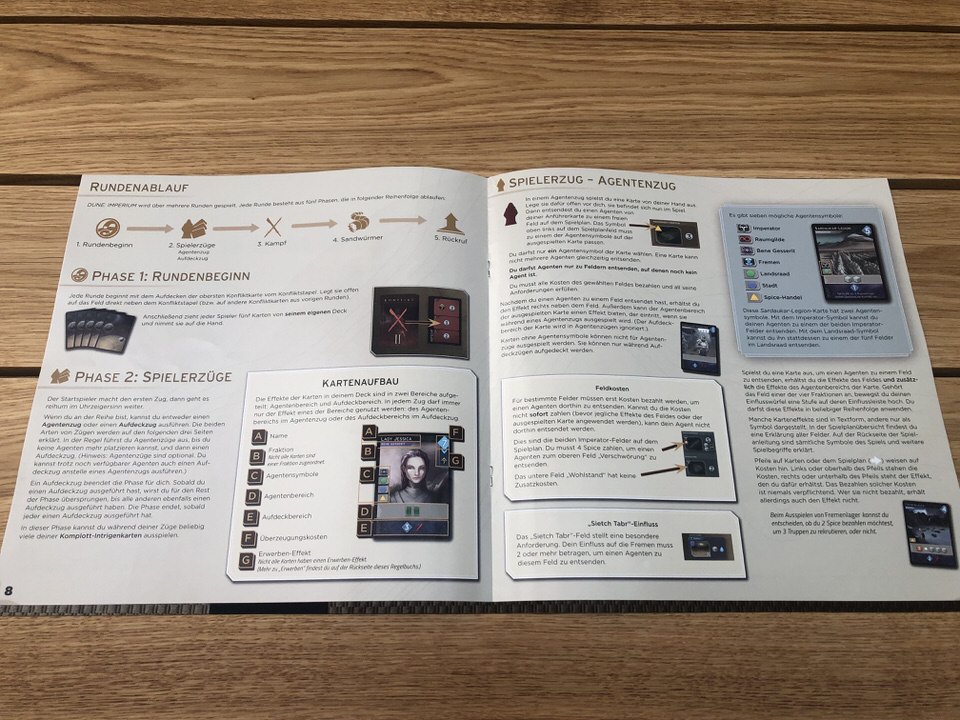
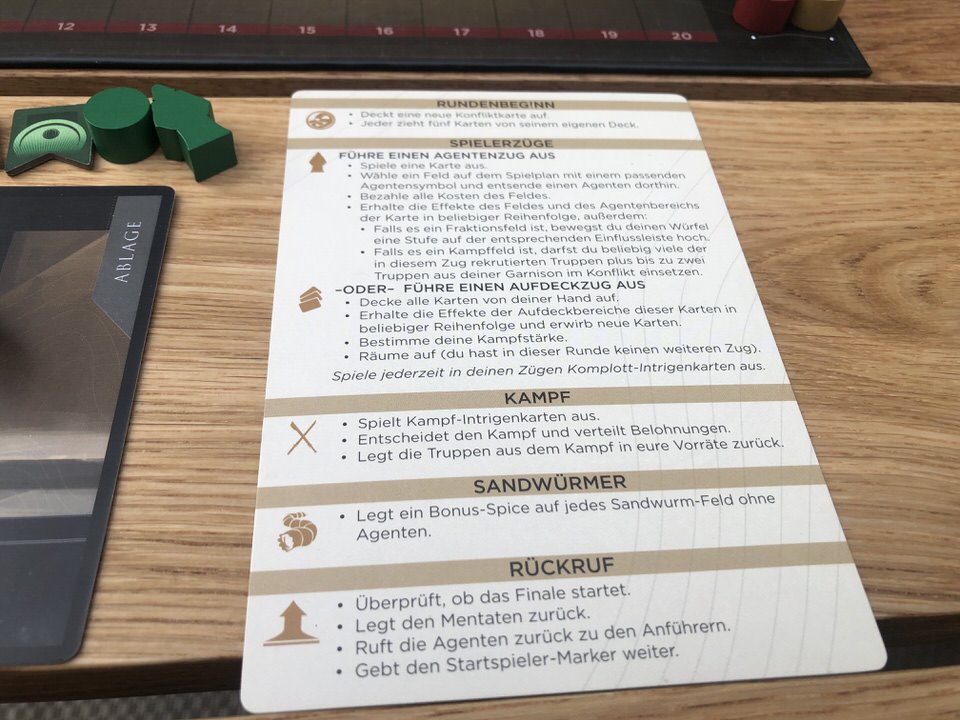
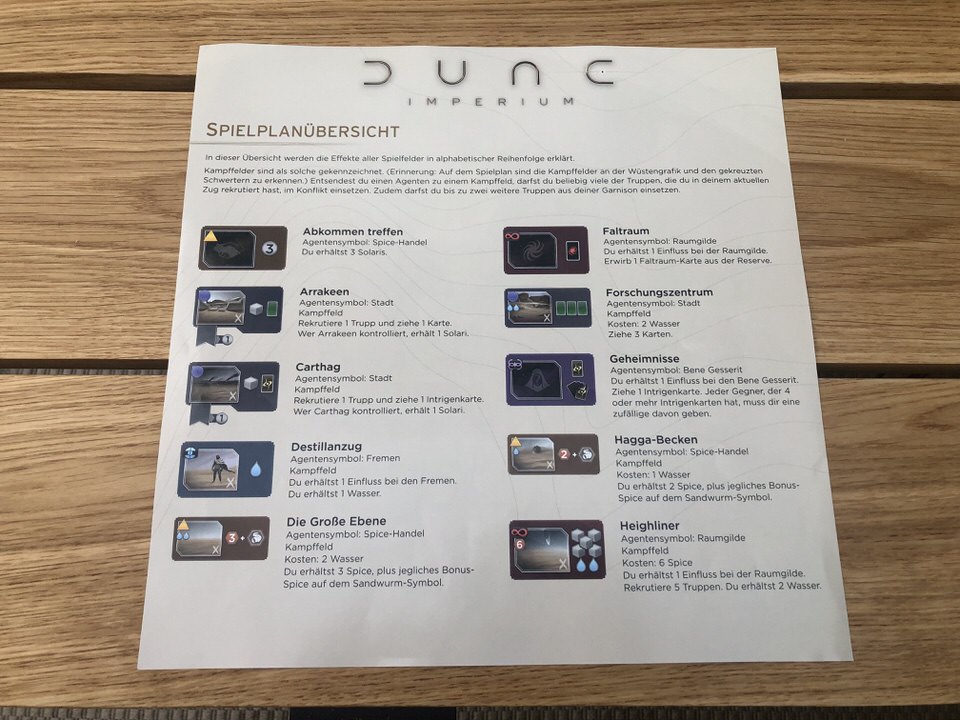
Leave a comment